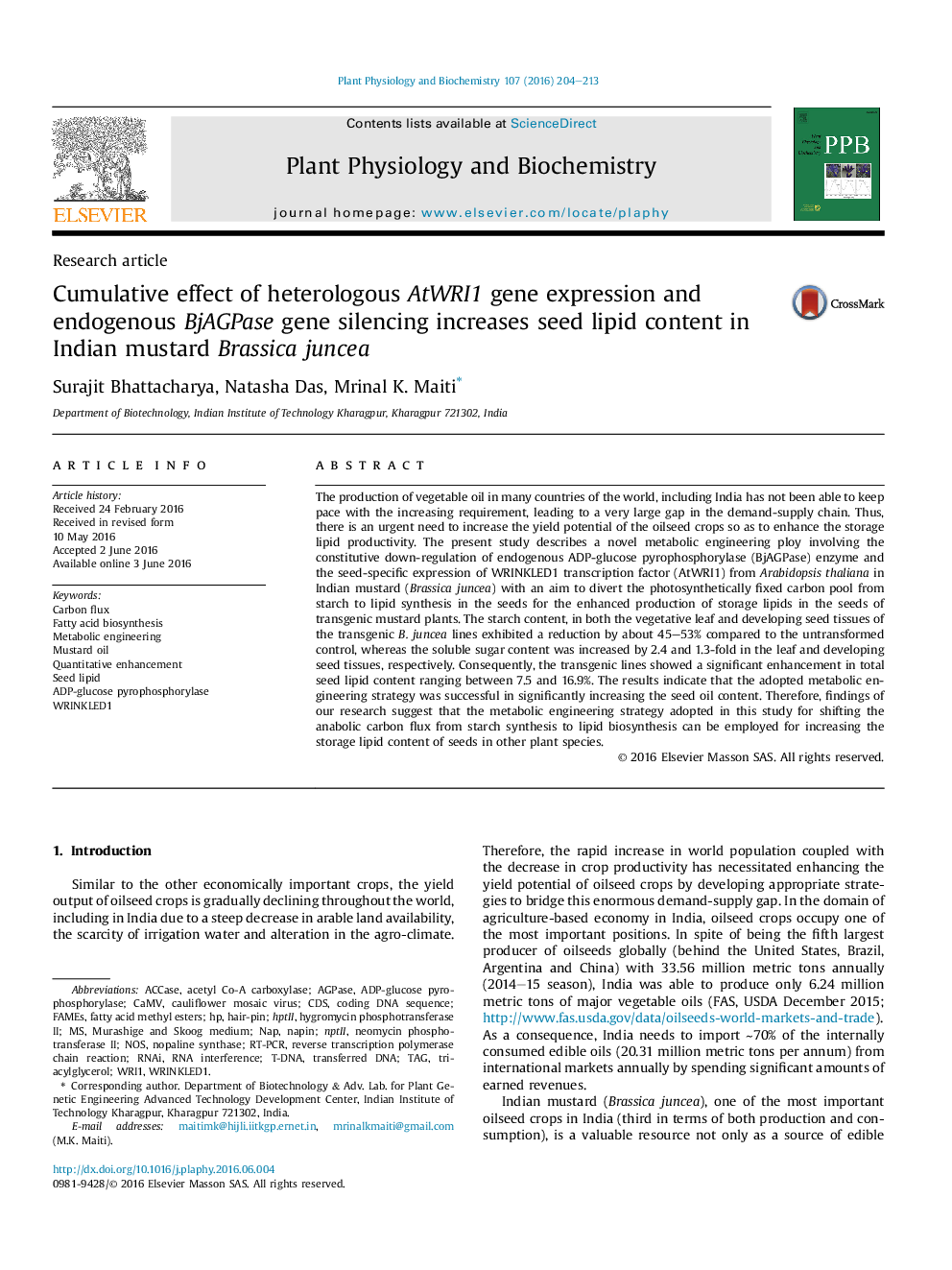| Article ID | Journal | Published Year | Pages | File Type |
|---|---|---|---|---|
| 2014665 | Plant Physiology and Biochemistry | 2016 | 10 Pages |
Abstract
The production of vegetable oil in many countries of the world, including India has not been able to keep pace with the increasing requirement, leading to a very large gap in the demand-supply chain. Thus, there is an urgent need to increase the yield potential of the oilseed crops so as to enhance the storage lipid productivity. The present study describes a novel metabolic engineering ploy involving the constitutive down-regulation of endogenous ADP-glucose pyrophosphorylase (BjAGPase) enzyme and the seed-specific expression of WRINKLED1 transcription factor (AtWRI1) from Arabidopsis thaliana in Indian mustard (Brassica juncea) with an aim to divert the photosynthetically fixed carbon pool from starch to lipid synthesis in the seeds for the enhanced production of storage lipids in the seeds of transgenic mustard plants. The starch content, in both the vegetative leaf and developing seed tissues of the transgenic B. juncea lines exhibited a reduction by about 45-53% compared to the untransformed control, whereas the soluble sugar content was increased by 2.4 and 1.3-fold in the leaf and developing seed tissues, respectively. Consequently, the transgenic lines showed a significant enhancement in total seed lipid content ranging between 7.5 and 16.9%. The results indicate that the adopted metabolic engineering strategy was successful in significantly increasing the seed oil content. Therefore, findings of our research suggest that the metabolic engineering strategy adopted in this study for shifting the anabolic carbon flux from starch synthesis to lipid biosynthesis can be employed for increasing the storage lipid content of seeds in other plant species.
Keywords
Related Topics
Life Sciences
Agricultural and Biological Sciences
Plant Science
Authors
Surajit Bhattacharya, Natasha Das, Mrinal K. Maiti,
